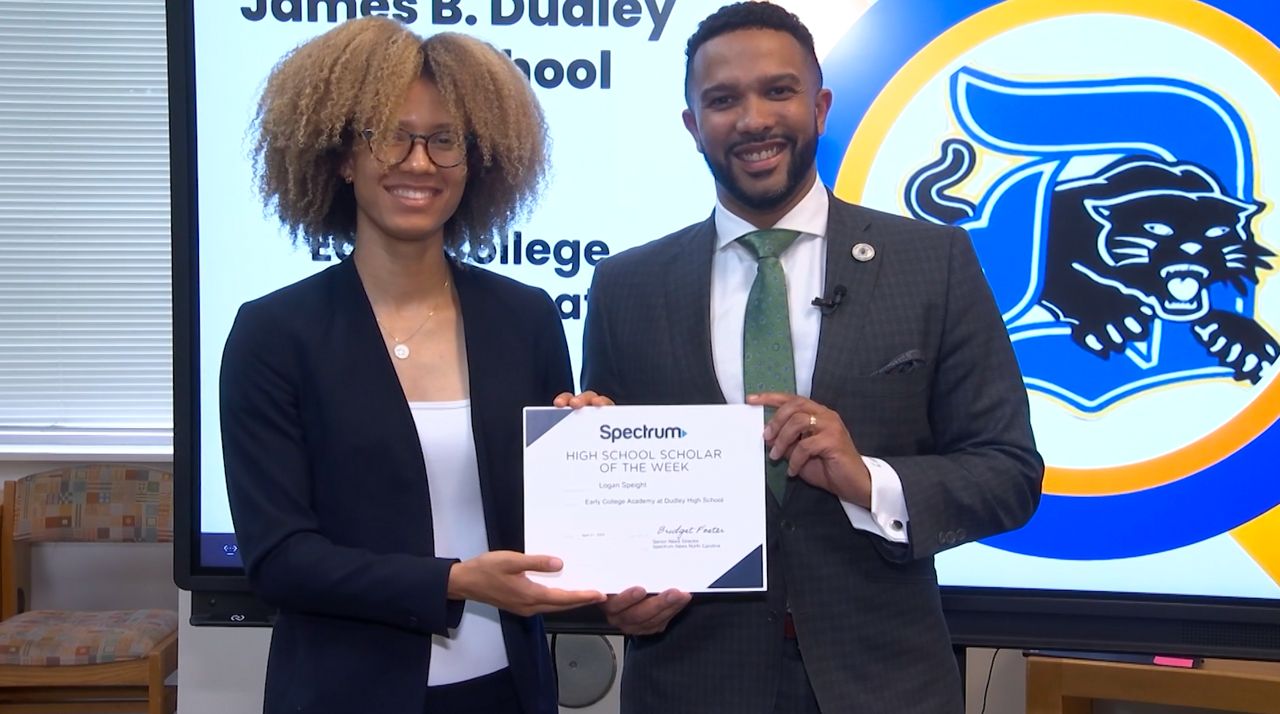RALEIGH, N.C. — Some women say they’ve had to endure unbearable pain in their bodies because fibroids left them feeling defeated.
A North Carolina woman, who has been struggling with the problem for 10 years, shares her story during Fibroid Awareness Month.
Researchers are looking into solutions to treat uterine fibroids so that women who want to have children can have that option.
“I feel wonderful because when I had my fibroids, it drained my energy, so standing on my feet for several hours was tiresome,” Toria Evans said.
Five months ago, it was nearly impossible for Evans, a Raleigh hairstylist, to do her job comfortably because fibroids left her feeling exhausted.
“By the end of the day, I would feel like I was hit by a bus,” Evans said.“By the end of the day, I would feel like I was hit by a bus,” Evans said.
Uterine fibroids are noncancerous tumors that can grow in and on the uterus and can be the size of grapes or lemons.
Doctors say up to 80% of women will develop fibroids by the age of 50.
Those numbers are even higher for Black women, who are three times more likely than white women, to develop fibroids and more severe symptoms.
“I had a lot of symptoms like a pregnant woman. Frequent urination and my uterus expanded like a pregnant woman and because of that, it put tension on my back. My menstrual cycle was heavy,” Evans said.
Evans had her second myomectomy in February, a surgery conducted to remove the fibroids. She also had one 10 years prior.
Evans said now she no longer feels defeated at work because the burdens have been removed.
“I enjoy my job. It’s my passion, but I do it with more ease now,” Evans said.
Doctors from N.C Central and Duke have spent the past 13 years researching uterine fibroids. The goal is to give women another option outside of a hysterectomy and other procedures.
Dr. Darlene Taylor, a professor of chemistry at N.C. Central, and Dr. Friederike Jayes, an assistant professor at the Duke Department of Obstetrics and Gynecology, have spent more than a decade combining their research into two parts.
“This could be a therapy that could be administered to an OB-GYN visit with your doctor,” Taylor said.“This could be a therapy that could be administered to an OB-GYN visit with your doctor,” Taylor said.
Jayes is using a drug that helps break fibroids down inside the body. Since tumors are collagen-based, the key factor is called collagenase.
“And then we had to test. Does this collagenase that’s used for other applications, does it actually destroy the fibroid tissue that comes out of women? And we do all those experiments in the women in the lab, and we found out it does work,” Jayes said.
Taylor created a product called LiquoGel, which aims to deliver drugs to targeted locations inside the body.
“We’re just hoping that we can get this therapy to women,” Taylor said.
Taylor says LiquoGel degrades over time. As it does, the drug is released. In other words, the drug begins to shrink or melt the fibroid, making it less stressful for women like Evans, who hopes to start a family one day.
“Lord willing, I will have a child,” Evans said.
Jayes and Taylor have already worked with Johns Hopkins University to complete the first clinical trial. They did the experiment with 12 women.
The next phase is to complete the second clinical trial. They hope to do that in the next two years.







)

